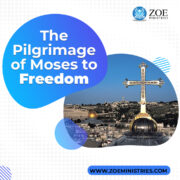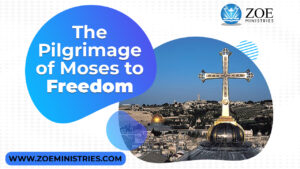Gathering the Nations
Bringing the People Together
“I have come to gather nations,” the prophecy begins. While it might be argued that the prophecy primarily refers to gathering the scattered Israelites, it could also refer to the nations themselves, the Gentiles. (The word here is goyim, which translates as “Gentiles” or “nations,” not “Jews.”) The goal of God’s plan of redemption is to bring all peoples together to worship him, to bless “all the families of the earth.” As at a pilgrim feast, the Gentiles are brought to Jerusalem to partake in God’s worship. The Lord declares in the prophecy that he will collect the nations and send “fugitives” to them to broadcast his “glory among the nations.”
These “escapees” or “survivors” have survived national persecution and God’s judgment. They resemble the earliest Christian missionaries, such as Paul, who traveled the world proclaiming the Gospel message. These missionaries’ task is to bring in a “harvest” of Gentiles and bring them to the Lord in Jerusalem. While making an offering to Jerusalem is primarily symbolic of our purposes, St. Paul took it very seriously. When he traveled over the Roman realm preaching the Gospel to the Gentiles, he also collected money from the Gentiles to give to the Christians in Jerusalem.
A River in the Desert
In Isaiah 41, the prophet likens the pilgrimage to a search for water in the desert:
“The poor and needy search for water,
but there is none;
their tongues are parched with thirst.
But I the Lord will answer them;
I, the God of Israel, will not forsake them.
I will make rivers flow on barren heights,
and springs within the valleys.
I will turn the desert into pools of water,
and the parched ground into springs.
I will put in the desert
the cedar and the acacia, the myrtle and the olive.
I will set junipers in the wasteland,
the fir and the cypress together,
so that people may see and know,
may consider and understand,
that the hand of the Lord has done this,
that the Holy One of Israel has created it. (Isa. 41:17-20)
This imagery is echoed in Psalm 84, written for the director of music:
Blessed are those whose strength is in you,
whose hearts are set on pilgrimage.
As they pass through the Valley of Baka,
they make it a place of springs;
the autumn rains also cover it with pools (Psa. 84:5-6)
A Highway in the Wilderness
Another metaphor that Isaiah uses to show God’s favor toward His pilgrims is that of the highway in the wilderness, a voice of one calling, “In the wilderness prepare the way for the Lord; make straight in the desert a highway for our God.” (Isa. 40:3)
Isaiah is more explicit in Chapter 3:
And a highway will be there;
it will be called the Way of Holiness;
it will be for those who walk on that Way.
The unclean will not journey on it;
wicked fools will not go about on it. (Isa. 35:8)
We see these words of the prophet echoed in the Gospels, particularly the Gospel of John, when John replied to the priests and Levites sent by the Jewish leaders in Jerusalem, “I am the voice of one calling in the wilderness, ‘Make straight the way for the Lord.’” (Jn. 1:23)
Prophetic wisdom and anointing await you. Connect for a personal prophecy.
Join our LIVE Conference Call!
1) Call 515-604-9266
2) Go to startmeeting.com, and use the login: BishopJordan












